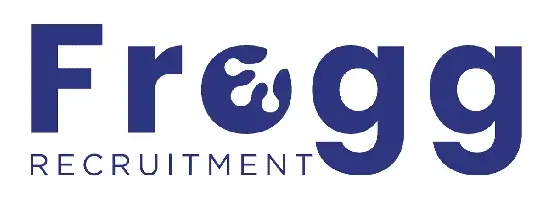Strategic thinking during interview questions
Why is strategic thinking so important?
The ability to think strategically has become essential for decision-makers and executives navigating the fast-paced commercial world of today.
Additionally, it is crucial to include strategic thinking during interview questions in the hiring process to find applicants with those kinds of abilities. This is especially important for recruiters/hiring managers in charge of recruitment. Interview questions centered on strategic thinking facilitate the identification of people capable of scenario analysis, as well as opportunity identification.
Furthermore, these questions help assess successful strategy development to propel corporate success. Notably, strategic thinking forms a big part of even the 10 most common interview questions. Therefore, interview questions for strategic thinking are designed to assess several critical facets of a candidate’s ability.
Therefore, they assess the following:
Analytical skills:
These questions assess a candidate’s ability to analyse complex problems and break them down into manageable components. They reveal the candidate’s capacity to gather relevant information, consider multiple perspectives, and draw logical conclusions.
Flexibility and Adaptability:
Questions focusing on adapting strategies to changing circumstances help gauge a candidate’s ability to respond effectively when faced with unexpected challenges. Furthermore, they reveal whether the candidate possesses the flexibility to adjust their plans and pivot their approach as needed.
Resource Allocation and Prioritization:
These questions aim to assess a candidate’s ability to make informed decisions regarding resource allocation. Candidates are evaluated on their capacity to identify priorities, assess the impact of different tasks or projects, and allocate resources strategically to maximize outcomes.
Opportunity Recognition and Threat Mitigation:
Questions related to identifying market opportunities or addressing competitive threats, on the other hand, evaluate a candidate’s ability to think strategically in response to external factors. Specifically, strategic thinking during interview questions, therefore, assesses their capacity to spot trends, anticipate risks, and capitalize on opportunities. This, in turn, highlights their proactive approach to strategic planning.
Alignment of objectives and execution:
These questions assess a candidate’s ability to bridge the gap between strategic objectives and the day-to-day activities of their team. Employers look for candidates who can effectively communicate goals, motivate their team, and ensure that their strategic plans are translated into actionable steps.
Influencer and stakeholder management:
Questions about persuading stakeholders to evaluate a candidate’s capacity for relationship-building, persuasion, and winning over others to innovative ideas or strategic orientations.
However, this shines through when you actively ask questions during the interview as well. Additionally, this shows that they can successfully negotiate intricate organizational dynamics and win over important players.
Strategic thinking during interview questions explained:
Firstly, this question assesses a candidate’s ability to understand complex situations. In addition, it tests their capability to break them down into manageable parts. Furthermore, it evaluates their skill in developing a strategic plan. When evaluating candidates, look for those who demonstrate a structured approach to problem-solving. Additionally, look for candidates who gather relevant information and consider various alternatives. Finally, seek candidates who can present a well-thought-out strategy
Strategic thinking involves being flexible and responsive when faced with unpredictable changes. In addition, this question aims to evaluate a candidate’s ability to adjust their strategy in response to evolving circumstances. Moreover, look for candidates who demonstrate agility, the ability to think on their feet, and a willingness to pivot their approach when necessary.
This question assesses a candidate’s ability to make sound decisions regarding resource allocation. Look for candidates who can assess the relative importance and impact of different tasks or projects, prioritize effectively, and allocate resources in a way that maximizes value and minimizes waste.
Strategic thinking involves identifying and capitalizing on opportunities while mitigating potential threats. This question helps evaluate a candidate’s ability to identify market trends, competitor activities, or other factors that could impact the organization. Look for candidates who demonstrate a proactive approach to seizing opportunities or addressing threats through strategic planning and execution.
Creating practical plans from high-level objectives and coordinating them with day-to-day activities are necessary for effective strategic thinking. In addition, emotional intelligence plays a key role here. Furthermore, this question assesses a candidate’s ability to bridge the gap between strategic goals and tactical execution. Moreover, look for candidates who emphasize clear communication, goal setting, and the ability to motivate and align their team toward strategic objectives.
Additionally, navigating complicated connections and persuading stakeholders to support and embrace new initiatives require strategic thinking. Moreover, this question assesses a candidate’s capacity to forge agreements, persuade others, and win over important stakeholders. In particular, look for candidates who can demonstrate effective negotiation skills and a track record of successfully driving change through strategic influence.
Furthermore, it is important to seek candidates who understand the importance of balancing immediate results with long-term strategic goals. Additionally, candidates should be able to analyze the potential consequences of their decisions and prioritize actions that align with the organization’s overarching strategy.
Additionally, those with a strategic mindset are adept at seeing areas for development and streamlining procedures. Furthermore, this question evaluates a candidate’s ability to spot inefficiencies and develop strategic solutions to enhance productivity or streamline operations. In addition, look for candidates who display their analytical skills, innovative thinking, and the ability to drive positive change.
This question assesses a candidate’s ability to think critically about market dynamics and develop strategies to outperform competitors. Moreover, look for candidates who demonstrate market awareness. In addition, they should have the ability to identify unique value. propositions, and the capability to create differentiation strategies that can help the organization gain a competitive edge.
Strategic thinking is the ability to make well-informed decisions under uncertain or incomplete conditions. Additionally, this question evaluates a candidate’s ability to analyse risks, weigh potential outcomes, and make calculated decisions in ambiguous situations. Furthermore, look for candidates who display their ability to gather relevant data, consult with relevant stakeholders, and demonstrate sound judgment.
The significance of matching departmental goals and team goals with company objectives is recognized by strategic thinkers. Moreover, to improve performance and adjust to changes in the market, this question evaluates a candidate’s capacity to evaluate the existing situation. In addition, it assesses their ability to spot gaps and strategically reorganize teams or departments.
It is important to look for candidates who can articulate their change management skills. Furthermore, their communication abilities and the ability to drive organizational alignment should also be considered.
Lastly, strategic thinkers are excellent at identifying opportunities even in adverse situations. Therefore, this question evaluates a candidate’s ability to think creatively and develop strategies to navigate crises successfully. Furthermore, look for candidates who demonstrate resilience, problem-solving skills, and the capacity to turn adversity into an advantage through strategic decision-making.
Conclusion
In conclusion, from the view of an employer, it is important to incorporate strategic thinking during interview questions. As a potential employee, it is important to have the ability to strategically think whether it be in the interview and then in the workplace. It is an ability you need to develop for your abilities to be tested.
For more insightful content like this, head over to our blog page and follow us on Facebook, Instagram, Twitter, and LinkedIn


